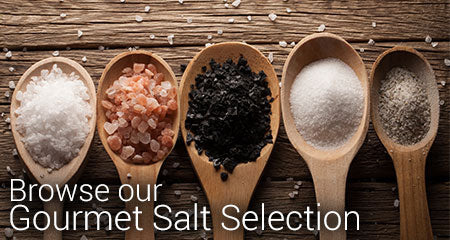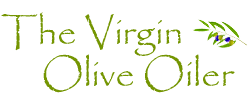Bacteria Lives Matter! #HP-EVOO - Blog #88

Hello Everyone! Welcome back to another Friday blog. Today I want to focus on our microbiome. Our microbiome includes bacteria, viruses, yeast and fungi - and maybe even smaller organisms we can't visualize yet! There are countless species that cohabitate in a delicate balance. These microbes are crucial for our well-being. Bacteria outnumber our cells by ~10x. What's even more mind-boggling is that viruses outnumber bacteria by ~10x. We are basically walking petri dishes for these tiny organisms. We feed and house them - in return, they metabolize, modify and produce vitamins and other important products that keep us healthy. However, when we don't feed them what they need to be healthy and think negatively, many things go wrong. So - who is really in control? Let's delve in.
Did you know we have bacteria living on every square inch of the inside and outside of our body? What we put on our skin - what we eat and drink - what we breathe in - all affects our microbes. Bacteria are living organisms with their own DNA - they require nutrients - they eat, poop, multiply and die. When they don't eat the right food, they can't make good products. Pseudomonas for example makes formaldehyde as a byproduct. Several bad guys make hydrogen sulfide gas. They also produce inflammatory molecules when they die, such as LPS (lipopolysaccharides) that can cause endotoxemia. So, what do these bacteria like to eat and what do they need to thrive?
- Fiber - both digestible and indigestible - Did you know that ~ 25% of human breast milk contains products (like oligosaccharides) not meant for the baby? It's actually food for the microbiome.
- phytonutrients (polyphenols, flavonoids, etc.)
- ketones and SCFAs (short-chain fatty acids)
- vitamins and minerals. In fact, they take ~ 25% of the food you eat. They will steal your vitamins, leaving you depleted. They will take the available minerals to run their own biological processes - magnesium, zinc, manganese, copper, molybdenum and others - every organism on earth fights to stay alive.
What we eat changes the diversity of microbes - the more diverse, the less disease we have. This is the reason you want to eat the rainbow of vegetables and fruits. The problem is we are not eating a diverse, phytonutrient-dense diet. We - as a nation - are eating a highly refined and processed diet that is void of fiber, minerals, nutrients, polyphenols and healthy fats. Further, we have sprayed harmful chemicals on our food - such as glyphosate - that has chelated (bound-up) the minerals and killed many of the microbes in the food. Check out blog # 70. The diversity of our microbiome narrows - we begin to harbor more of the bad-acting microbes than the good. They tend to make pro-inflammatory products and we become inflamed.
Another important fact to realize is they hear your thoughts! Your brain is the optimal pharmacy and responds to what you tell it. When you think negative thoughts you produce ‘bad medicine’ - chemicals that negatively affect us and change our microbiome (for the worse). These chemicals can turn beneficial bacteria into producing more harmful products that drive inflammation. This can also drive your cravings for sugar (for example) - or any other food you are addicted to. They are pulling the strings - and we are as compliant as zombies most of the time. However, when you think positively you produce ‘good medicine’ that heals your body and enhances your beneficial microbes. The good guys make short-chain fatty acids that feed butyrate (for example) to our enterocytes (cells that line the intestine). You can see how intestinal dysfunction can happen - we don't feed our microbiome - they can't make butyrate - our enterocytes get weak - the tight-junctions are too weak to close tightly - we get leaky gut - sewage literally leaks out of the gut and into the body - this activates our immune system, where ~70% of our army is on guard - further driving inflammation and autoimmune processes.
To further complicate the digestive issue, when we don't feed our microbes what they need they will begin to consume the mucus layer protecting the intestinal epithelium - which is only one-cell-layer thick. This mucous layer works as a trap to prevent the wrong things from getting into the bloodstream. In the small intestine, there is a single layer of mucus - this is where most of the absorption of nutrients takes place. However, in the large intestine there is an inner layer and an outer layer of mucus. The mucus is really a mesh network that expands. The expansion is dependent on water availability and ionic composition. Do you think your body can make a good mucus layer if you are dehydrated? 😳 Or, if you are lacking minerals? It’s a good idea to put electrolytes in your water and drink your body weight in oz of water daily.
NOTE: **Very few species inhabit the small intestine. - [When bad microbes travel from the large intestine and begin to populate the small intestine, it is called SIBO (small intestinal bacterial overgrowth). This can create a situation where they are producing gas - we blow up with our 'food baby' and are miserable.] **
“In contrast to the sterile inner layer of mucus, the outer mucus layer is rich in gut bacteria. These bacteria use diet fiber as energy source; however, under a fiber-free diet they consume MUC2 polysaccharides, leading to a thinner inner mucus layer and dysbiosis, as well as bacteria penetration into the lamina propria contributing to IBD development.” In other words, if you don’t feed your gut microbes the fiber they require as a food source, they will begin to eat your mucus layer - leading to dysbiosis and irritable bowel disease (IBD). Check out blog # 68.
We rely on certain “mucus-loving” microbes - like Akkermancia - to produce the mucus layer - as well as goblet cells in the intestine. The goblet cells require high energy (ATP). “When the cell is actively secreting, the canaliculi enlarge, as they fill with secreted juice. These cells are also rich in mitochondria that provide the energy in the form of ATP required for the secretory process.” If you aren’t feeding your mitochondria, they can’t make the energy required to produce enough mucus for protection and our digestive processes are impaired.
Our microbiome communicates with each other - and their "sisters" the mitochondria - via 'post-biotic' messages - sort of like a text message. Mitochondria are organelles (small organs) inside most of our cells that use oxygen to turn our food into energy (ATP) to drive all cellular processes. "All mitochondria derive from a common ancestral organelle that originated from the integration of an endosymbiotic alphaproteobacterium into a host cell related to Asgard Archaea." Mitochondria make our energy. When they are starved to death, worked to death, damaged, senescent (aged) and dysfunctional, we get diseases like cancer, Alzheimer's, T2D (type 2 diabetes) and obesity. We are in trouble. If our mitochondria die...we die. Game over.
So, just how important is the microbiome anyway? Turns out, if your goal is to be healthy and live a long disease-free life, you need to feed them first - make them a priority! They make SCFAs for us and the mitochondria, produce blood pressure-lowering molecules like NO (nitric oxide), make butyrate for our enterocytes (intestinal cells). Bacteria lives really do matter. Lol. Let's take a look at what we can do to enhance our microbiome, mitochondrial force and function, enhance our mucus layer, turn on longevity genes and turn off disease-promoting genes.
- Drink water with electrolytes - your microbes need electrolytes to run their biological processes - we need them to run all of our biological processes too! You want the water you drink to promote our cellular battery charge, not deplete it. This helps to make (EZ) ‘exclusion-zone water.’ “EZ was reported to have a higher index of refraction, which is attributed to a higher density due to a change in the water’s structure.” This phenomenon/theory is controversial to date. However, since water is the ultimate solvent, you can see how it could change the charge of a cell - depending on the mineral content. Ideally, you want the water you drink to be the same osmolality of the internal cellular water - to be able to maintain a battery-like charge.
- Eat healthy fats! EVOO, MCT, coconut oil, GrassFed butter, avocados - they turn into ketones - your mitochondria love ketones - several beneficial bacteria love them too - Including: Bacteroidetes, Lactobacillus, Akkermansia, Firmicutes and Bacteroides species - consume MCTs (medium chain triglycerides) from coconut, grass-fed goat cheese or sheep's cheese - it contains readily available ketones due to 1/3 of the fat content is already ketones.
- Fiber - Get plenty of fiber from whole foods - indigestible and digestible fiber create a viscous layer in the gut that slows down the absorption of glucose in the duodenum (upper small intestine), allowing it to make it to the jejunum where the microbes can consume some before it is fully absorbed. This promotes a keystone species called Faecalibacterium Prausnitzii - wiped out with Covid-19. You can also take indigestible fiber - such as GOS (galactooligosaccharides) - taking this for 3 months increases T-cells by ~ 70% - or konjac root is another source. You would take this with a 12 oz glass of water 30 min prior to meals. This feeds the good microbes and creates a viscous mesh that coats the intestinal lining, slowing down absorption of glucose and stabilizing blood sugar.
- Fermented foods - these are natural probiotics and generally provide prebiotic fiber, probiotic species and postbiotics! Raw-fermented sauerkraut, water kefir, goat milk and grass-fed kefir, Greek yogurt, kimchi, natto, miso, fermented pickles and other veggies…
- Autophagy - “Autophagy is an intracellular degradation process required for maintenance of intestinal homeostasis.” We can enhance autophagy by time-restricted eating/intermittent fasting and prolonged fasting. EVOO, exercise, cold exposure, fasting can all trigger autophagy.
- Grounding - also called “earthing.” The earth is the largest magnet and emits a negative charge. “Grounding is especially important in preventing inflammatory illness.” We can decrease the constant bombardment of EMFs (electromagnetic frequencies) by standing barefoot in the grass - or better yet, the edge of the ocean (salt water is an amazing conductor). It is a powerful anti-inflammatory that we don’t tap in to anymore - due to our indoor lifestyle and wearing of shoes.
- Omega 3s - DHA, EPA - found in animal products and protect goblet cells - cells that line the intestine - “eicosapentaenoic (EPA) and docosahexaenoic (DHA) acids protect goblet cells against ER stress-mediated altered Muc2 secretion induced by PAL” (palmitic acid a saturated fat).
- HP-EVOO - High polyphenol extra virgin olive oil - Polyphenols in EVOO exert powerful anti-inflammatory actions to protect the entire gastrointestinal tract (as well as every organ system in the body). Oleacein: “OLE protected the mucin-containing goblet cells in colon and the serum levels of iFABP and sCD14, markers that reflect loss of intestinal epithelial barrier integrity and low-grade systemic inflammation, were significantly reduced…OLE induced an EAE-independent raise in the abundance of Akkermansiaceae family…We confirmed that OLE protected against intestinal barrier dysfunction induced by harmful mediators.”






